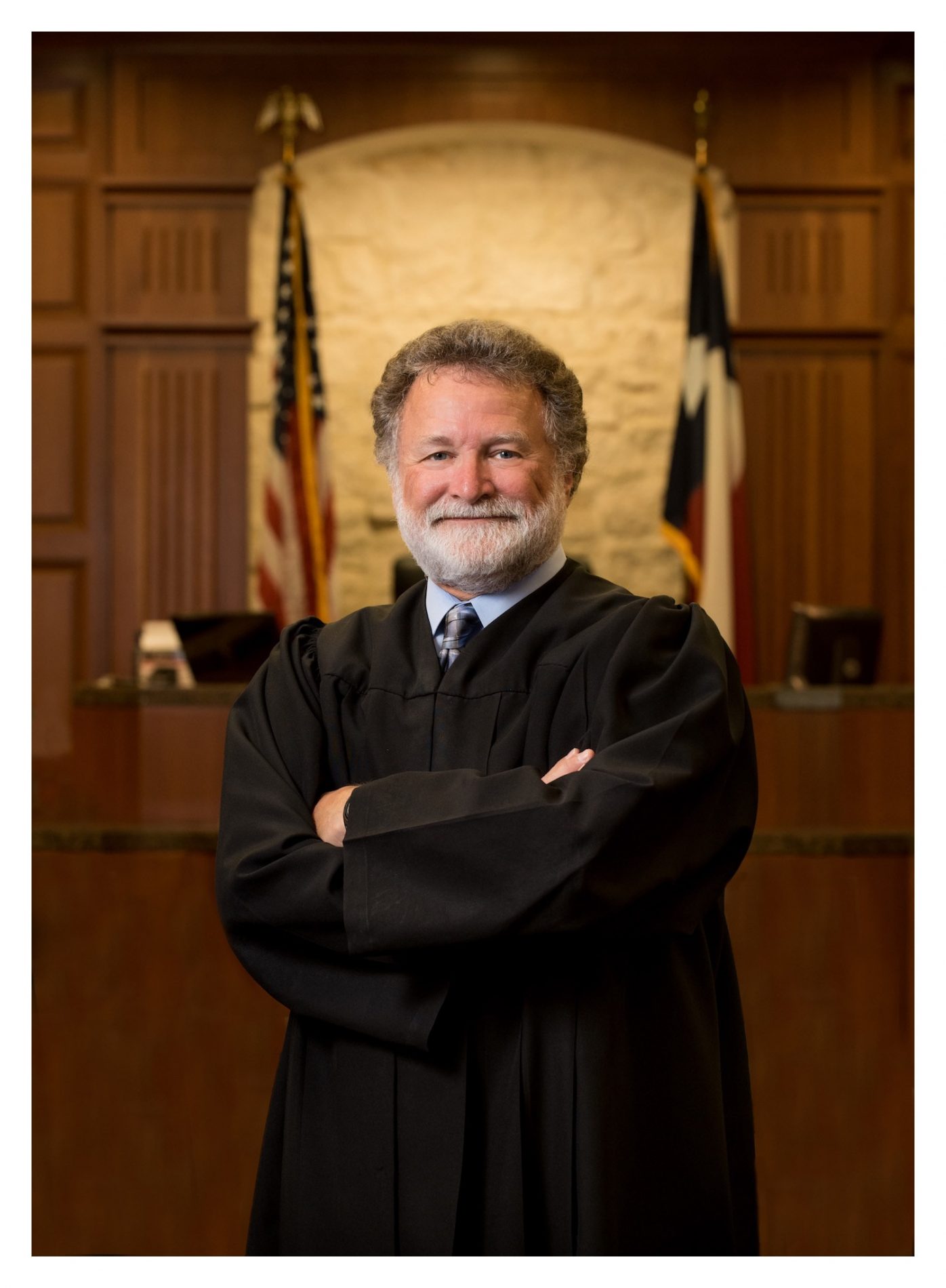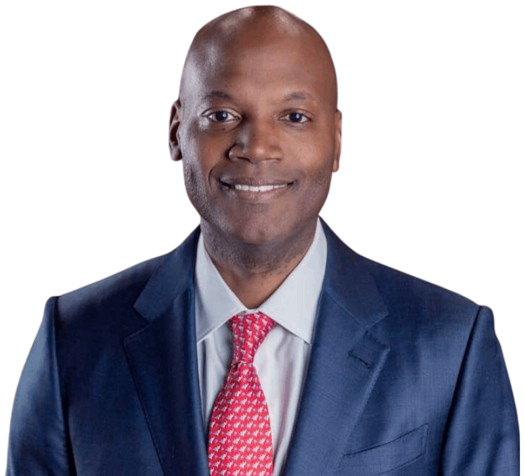The Texas Progressive Alliance is still thawing itself out as it brings you this week’s roundup.
Calendar
Categories
Archives
My linkage
Polling Texas 2020
UT/Trib, Apr 25: Trump 49, Biden 44
DT/PPP, Apr 29: Biden 47, Trump 46
UT-Tyler/DMN, May 3: Trump 43, Biden 43
Emerson, May 13: Trump 47, Biden 41
Quinnipiac, June 3: Trump 44, Biden 43
PPP, June 5: Trump 48, Biden 48
PPP/PT, June 23: Trump 48, Biden 46
Fox, June 25: Biden 45, Trump 44
UT/Trib, July 2: Trump 48, Biden 44
PPP/Emily’s List, July 2: Biden 48, Trump 46
UT-Tyler/DMN, July 12: Biden 48, Trump 43
CBSNews, July 12: Trump 46, Biden 45
Quinnipiac, July 22: Biden 45, Trump 44
Morning Consult, July 28: Biden 47, Trump 45
Morning Consult, August 3: Biden 47, Trump 46
Polling Texas 2018
WPA, Jan 5: Cruz 52, O'Rourke 34
PPP, Jan 27: Cruz 45, O'Rourke 37
Quinnipiac, April 19: Cruz 47, O'Rourke 44
Quinnipiac, May 31: Cruz 50, O'Rourke 39
PPP, June 8: Cruz 48, O'Rourke 42
GQR, June 16: Cruz 49, O'Rourke 43
CBS/YouGov, June 24: Cruz 44, O'Rourke 36
UT/Trib, June 25: Cruz 41, O'Rourke 36
Gravis, July 10: Cruz 51, O'Rourke 42
Lyceum, July 31: Cruz 41, O'Rourke 39
Quinnipiac, July 31: Cruz 49, O'Rourke 43
PPP, August 2: Cruz 46, O'Rourke 42
NBC News, August 23: Cruz 49, O'Rourke 45
ECPS, August 27: Cruz 38, O'Rourke 37
Crosswinds, September 12: Cruz 47, O'Rourke 44
Quinnipiac, September 18 (LV): Cruz 54, O'Rourke 45
Ipsos, September 19 (LV): O'Rourke 47, Cruz 45Polling Texas 2016
Beatty, Jun 22: Trump 37, Clinton 30
UT/TTP, Jun 27: Trump 41, Clinton 33
KTVT/Dixie, Aug 11: Trump 46, Clinton 35
PPP, Aug 16: Trump 44, Clinton 38
WaPo-SurveyMonkey, Sep 6: Clinton 46, Trump 45
ECPS, Sep 14: Trump 42, Clinton 36
Texas Lyceum, Sep 15: Trump 39, Clinton 32
YouGov, Oct 3: Trump 50,1, Clinton 41.5
KTVT/Dixie, Oct 5: Trump 45, Clinton 38
WFAA/SurveyUSA, Oct 14: Trump 47, Clinton 43
UH Hobby Center, Oct 17: Trump 41, Clinton 38
WaPo/SurveyMonkey, Oct 17: Trump 48, Clinton 46
CBS/YouGov, Oct 23: Trump 46, Clinton 43
Crosswind/Statesman, Oct 27: Trump 45, Clinton 38
UT/TT, Oct 27: Trump 45, Clinton 42
KTVT/Dixie Strategies, Nov 2: Trump 52, Clinton 39
NBC/WSJ/Marist, Nov 3: Trump 49, Clinton 40
ECPS, Nov 3: Trump 49, Clinton 34
YouGov, Nov 5: Trump 50.3, Clinton 42.4Polling Texas 2014
UT/TT, Nov 2013: Abbott 40, Davis 35, Glass 5
PPP, Nov 2013: Abbott 50, Davis 35
UT/TT, Feb 2014: Abbott 47, Davis 36
ECPS, Mar 2014: Abbott 49, Davis 42
Rasmussen, Mar 2014: Abbott 53, Davis 41
PPP, Apr 2014: Abbott 51, Davis 37
UT/TT, June 2014:Abbott 44, Davis 32
YouGov, July 2014: Abbott 50, Davis 34
Rasmussen, Aug 2014: Abbott 48, Davis 40
YouGov, Sep 2014: Abbott 56, Davis 38
Lyceum, Oct 2014: Abbott 49, Davis 40
Rasmussen, Oct 2014: Abbott 51, Davis 40
KHOU, Oct 2014: Abbott 47, Davis 32
UT/TT, Oct 2014: Abbott 54, Davis 38
YouGov, Oct 2014: Abbott 57, Davis 37Polling Texas 2012
PPP April 26: Romney 50, Obama 43
UT/TT May 22: Romney 46, Obama 38 (RV) - Romney 55, Obama 35 (LV)
WPAOR Sep 13: Romney 55, Obama 40
YouGov Sep 24: Romney 52, Obama 41
Lyceum Oct 2: Romney 58, Obama 39
YouGov Oct 17: Romney 55, Obama 41
UT/TT Oct 29: Romney 55, Obama 39
Baselice Oct 30: Romney 54, Obama 38
YouGov Nov 3: Romney 57, Obama 38-
Recent Posts
- A bit more election miscellany
- Terry Virts to run in CD09
- Who wants to Save College Sports?
- Tuesday was a good day for school boards
- Finally, a real story about Taylor Rehmet
- HPD king of overtime reassigned
- More on the November election
- Metro restores signal priority to the Main Street line
- Fifth Circuit to hear Ten Commandments case in January
- Texas blog roundup for the week of November 3
Recent Comments
- Mainstream on A bit more election miscellany
- C.L. on HPD king of overtime reassigned
- Jonathan Freeman on HPD king of overtime reassigned
- Woah on HPD king of overtime reassigned
- Mainstream on More on the November election
Tags
- Annise Parker
- Attorney General
- blog roundup
- budget
- Commissioners Court
- Congress
- coronavirus
- Dan Patrick
- Democratic primary
- Donald Trump
- Election 2010
- Election 2012
- Election 2014
- Election 2016
- Election 2018
- Election 2020
- Election 2022
- Election 2024
- Governor
- Greg Abbott
- Harris County
- HISD
- Houston
- Houston City Council
- interviews
- judicial races
- Ken Paxton
- lawsuit
- linkdump
- Mayor
- polls
- President
- redistricting
- Rick Perry
- runoff
- schools
- SCOTUS
- Senate
- Supreme Court
- Sylvester Turner
- Texas
- The Lege
- TPA
- turnout
- videos
Blogroll
- ‘stina is a shiny special one
- 2 On The Beat
- A Perfectly Cromulent Blog
- AintNoBadDude
- alicublog
- Amygdala
- ArchPundit
- AS THE COURT TURNS
- Asian American Action Fund
- Austin Contrarian
- B and B
- Bald Heretic
- Baseball Musings
- Bay Area Houston
- BEYONDbones
- Big Pink Cookie
- Blog con Queso
- bloggin’ all things brownsville
- Blue Bloggin'
- BlueBloggin
- Booman Tribune
- Boots on the Bayou
- Boyd’s Blog
- Brains and Eggs
- Burkablog
- Burnt Orange Report
- BY THE BAYOU
- calle viena
- Campos Communications
- Capitol Annex
- Christine Quinones
- ConFrijoles
- Coyote Mercury
- Daily Kos
- DARE to LIVE in Farmers Branch
- David Ortez
- debutaunt.com
- Defending People
- Dig Deeper Texas
- Digby
- Dog Canyon
- Don Large Political Report
- DosCentavos.net
- DreamHost Blog
- Easter Lemming Liberal News
- Eschaton
- Eye on Williamson
- Ezra Klein
- FalkenBlog
- FiveThirtyEight
- Forrest For the Trees
- Frothing at the Mouth
- Greg’s Opinion
- Grits for Breakfast
- H-Town Chow Down
- Hair Balls
- Half Empty
- Hey Elise
- Home in the Heights
- Hopefully So
- Houston Calling
- Houston Politics
- Houston Strategies
- Houston’s Clear Thinkers
- Houstonist
- Houtopia
- Idiotprogrammer
- In The Pink Texas
- INSOLVENT REPUBLIC OF BLOGISTAN
- Insomniactive
- Intermodality
- Isiah Carey
- Jeff Balke
- Juanita Jean
- Julie Pippert: Using My Words
- Kevin Drum
- Kuff’s World
- Latinos For Texas Blog
- Laurie Kendrick
- Letters from Texas
- Lewisville Texan
- Life at the Harris County Criminal Justice Center
- Linkmeister
- Local Texans
- Lone Star Times
- Lost… and Gone Forever
- m e a n r a c h e l
- M1EK’s Bake-Sale of Bile
- Marc’s Miscellany
- Mark Evanier
- Matthew Yglesias
- McBlogger
- Mean Green Cougar Red
- MeMo
- Mike McGuff
- Miya Shay
- MOMocrats
- musings
- My Houston Family Lawyer
- MyDD
- Nail-Tinted Glasses
- neoHOUSTON
- Newsrack Blog
- nonsequiteuse
- North Texas Liberal
- Oliver Willis
- On the Move
- Ones and Zeros East
- Owls
- Page Break
- Pandagon
- Peter Sagal
- Poli-Tex
- PoliTex
- Political Animal
- Postcards
- Prof13
- Purple Texas
- racymind
- Ramblings of an HHSC Employee amidst chaos
- Rantings from 35,000 feet
- rc3.org
- Rep. Mike Villarreal
- Rhetoric & Rhythm
- Richmondrail.org
- Rick Perry vs The World
- Saint Arnold Brewhouse Blog
- Same Blog, Different Day
- SciGuy
- Sisyphus Shrugged
- slacktivist
- Slightly Rough
- Snarkout
- South Texas Chisme
- Suburban Guerrilla
- Swamplot
- Swing State Project
- Ta-Nehisi Coates
- Taegan Goddard’s Political Wire
- Talking Points Memo
- TalkLeft
- TAPPED
- TBogg
- TechBlog
- Texans Against Hunger
- TexansChick
- Texas Freedom Network
- Texas Liberal
- Texas Musings
- Texas on the Potomac
- Texas Politics
- Texas Vox
- Texas Watchdog
- the bill clerk
- The Bloggess
- THE BRAZOSPORT NEWS
- The Caucus Blog
- The Comics Curmudgeon
- The Contrarian
- The Dark Star Gazette
- The Futility Infielder
- The Great God Pan Is Dead
- The Heights Life
- The Lunch Tray
- The Poor Man Institute
- The Sanctuary
- The Sideshow
- The Texas Blue
- The Texas Tribune
- The Thicket at State Legislatures
- There… Already
- They are Building a Wal-Mart on My Street
- This Blog Is Full Of Crap
- Thomason Tracts
- Three Wise Men
- TRAIL BLAZERS
- TruthHugger
- Tubular
- Tx Capitol Report
- Uncertain Principles
- Unqualified Offerings
- Vigilant, the Common Cause Texas Blog
- Wait, Wait, Don't Blog Me!
- Walker Report
- Wampum
- What She Really Thinks
- What Would Jack Do?
- Whitless Humorings
- WP Support Forum
- Zippidy Doo Da
Utilities
Categories
Archives
Polling Texas 2016
Beatty, Jun 22: Trump 37, Clinton 30
UT/TTP, Jun 27: Trump 41, Clinton 33
KTVT/Dixie, Aug 11: Trump 46, Clinton 35
PPP, Aug 16: Trump 44, Clinton 38
WaPo-SurveyMonkey, Sep 6: Clinton 46, Trump 45
ECPS, Sep 14: Trump 42, Clinton 36
Texas Lyceum, Sep 15: Trump 39, Clinton 32
YouGov, Oct 3: Trump 50,1, Clinton 41.5
KTVT/Dixie, Oct 5: Trump 45, Clinton 38
WFAA/SurveyUSA, Oct 14: Trump 47, Clinton 43
UH Hobby Center, Oct 17: Trump 41, Clinton 38
WaPo/SurveyMonkey, Oct 17: Trump 48, Clinton 46
CBS/YouGov, Oct 23: Trump 46, Clinton 43
Crosswind/Statesman, Oct 27: Trump 45, Clinton 38
UT/TT, Oct 27: Trump 45, Clinton 42
KTVT/Dixie Strategies, Nov 2: Trump 52, Clinton 39
NBC/WSJ/Marist, Nov 3: Trump 49, Clinton 40
ECPS, Nov 3: Trump 49, Clinton 34
YouGov, Nov 5: Trump 50,3, Clinton 42.4
Polling Texas 2014
UT/TT, Nov 2013: Abbott 40, Davis 35, Glass 5
PPP, Nov 2013: Abbott 50, Davis 35
UT/TT, Feb 2014: Abbott 47, Davis 36
ECPS, Mar 2014: Abbott 49, Davis 42
Rasmussen, Mar 2014: Abbott 53, Davis 41
PPP, Apr 2014: Abbott 51, Davis 37
UT/TT, June 2014:Abbott 44, Davis 32
YouGov, July 2014: Abbott 50, Davis 34
Rasmussen, Aug 2014: Abbott 48, Davis 40
YouGov, Sep 2014: Abbott 56, Davis 38
Lyceum, Oct 2014: Abbott 49, Davis 40
Rasmussen, Oct 2014: Abbott 51, Davis 40
KHOU, Oct 2014: Abbott 47, Davis 32
UT/TT, Oct 2014: Abbott 54, Davis 38
YouGov, Oct 2014: Abbott 57, Davis 37
Polling Texas 2012
PPP April 26: Romney 50, Obama 43
UT/TT May 22: Romney 46, Obama 38 (RV) - Romney 55, Obama 35 (LV)
WPAOR Sep 13: Romney 55, Obama 40
YouGov Sep 24: Romney 52, Obama 41
Lyceum Oct 2: Romney 58, Obama 39
YouGov Oct 17: Romney 55, Obama 41
UT/TT Oct 29: Romney 55, Obama 39
Baselice Oct 30: Romney 54, Obama 38
YouGov Nov 3: Romney 57, Obama 38
My Linkage
Recent Comments
- Mainstream on A bit more election miscellany
- C.L. on HPD king of overtime reassigned
- Jonathan Freeman on HPD king of overtime reassigned
- Woah on HPD king of overtime reassigned
- Mainstream on More on the November election
- J on More on the November election
- Woah on Metro restores signal priority to the Main Street line
- Charles Kuffner on More on the November election
- Robbie B Westmoreland on More on the November election
- J on November 2025 election: National results
- Flypusher on November 2025 election: National results
- J on Where the rainbow crosswalk ends
- J on The secret plan to slow down the Main Street Line
- Mainstream on SOS responds to “closed primary” lawsuit
- D.R. on Election Day for November 2025 is tomorrow
-
Recent Posts
- A bit more election miscellany
- Terry Virts to run in CD09
- Who wants to Save College Sports?
- Tuesday was a good day for school boards
- Finally, a real story about Taylor Rehmet
- HPD king of overtime reassigned
- More on the November election
- Metro restores signal priority to the Main Street line
- Fifth Circuit to hear Ten Commandments case in January
- Texas blog roundup for the week of November 3
- November 2025 election results: Local and state
- November 2025 election: National results
- The secret plan to slow down the Main Street Line
- Second lawsuit filed over Texas app age verification law
- Where the rainbow crosswalk ends
Tags
- Annise Parker
- Attorney General
- blog roundup
- budget
- Commissioners Court
- Congress
- coronavirus
- Dan Patrick
- Democratic primary
- Donald Trump
- Election 2010
- Election 2012
- Election 2014
- Election 2016
- Election 2018
- Election 2020
- Election 2022
- Election 2024
- Governor
- Greg Abbott
- Harris County
- HISD
- Houston
- Houston City Council
- interviews
- judicial races
- Ken Paxton
- lawsuit
- linkdump
- Mayor
- polls
- President
- redistricting
- Rick Perry
- runoff
- schools
- SCOTUS
- Senate
- Supreme Court
- Sylvester Turner
- Texas
- The Lege
- TPA
- turnout
- videos
Blogroll
- ‘stina is a shiny special one
- 2 On The Beat
- A Perfectly Cromulent Blog
- AintNoBadDude
- alicublog
- Amygdala
- ArchPundit
- AS THE COURT TURNS
- Asian American Action Fund
- Austin Contrarian
- B and B
- Bald Heretic
- Baseball Musings
- Bay Area Houston
- BEYONDbones
- Big Pink Cookie
- Blog con Queso
- bloggin’ all things brownsville
- Blue Bloggin'
- BlueBloggin
- Booman Tribune
- Boots on the Bayou
- Boyd’s Blog
- Brains and Eggs
- Burkablog
- Burnt Orange Report
- BY THE BAYOU
- calle viena
- Campos Communications
- Capitol Annex
- Christine Quinones
- ConFrijoles
- Coyote Mercury
- Daily Kos
- DARE to LIVE in Farmers Branch
- David Ortez
- debutaunt.com
- Defending People
- Dig Deeper Texas
- Digby
- Dog Canyon
- Don Large Political Report
- DosCentavos.net
- DreamHost Blog
- Easter Lemming Liberal News
- Eschaton
- Eye on Williamson
- Ezra Klein
- FalkenBlog
- FiveThirtyEight
- Forrest For the Trees
- Frothing at the Mouth
- Greg’s Opinion
- Grits for Breakfast
- H-Town Chow Down
- Hair Balls
- Half Empty
- Hey Elise
- Home in the Heights
- Hopefully So
- Houston Calling
- Houston Politics
- Houston Strategies
- Houston’s Clear Thinkers
- Houstonist
- Houtopia
- Idiotprogrammer
- In The Pink Texas
- INSOLVENT REPUBLIC OF BLOGISTAN
- Insomniactive
- Intermodality
- Isiah Carey
- Jeff Balke
- Juanita Jean
- Julie Pippert: Using My Words
- Kevin Drum
- Kuff’s World
- Latinos For Texas Blog
- Laurie Kendrick
- Letters from Texas
- Lewisville Texan
- Life at the Harris County Criminal Justice Center
- Linkmeister
- Local Texans
- Lone Star Times
- Lost… and Gone Forever
- m e a n r a c h e l
- M1EK’s Bake-Sale of Bile
- Marc’s Miscellany
- Mark Evanier
- Matthew Yglesias
- McBlogger
- Mean Green Cougar Red
- MeMo
- Mike McGuff
- Miya Shay
- MOMocrats
- musings
- My Houston Family Lawyer
- MyDD
- Nail-Tinted Glasses
- neoHOUSTON
- Newsrack Blog
- nonsequiteuse
- North Texas Liberal
- Oliver Willis
- On the Move
- Ones and Zeros East
- Owls
- Page Break
- Pandagon
- Peter Sagal
- Poli-Tex
- PoliTex
- Political Animal
- Postcards
- Prof13
- Purple Texas
- racymind
- Ramblings of an HHSC Employee amidst chaos
- Rantings from 35,000 feet
- rc3.org
- Rep. Mike Villarreal
- Rhetoric & Rhythm
- Richmondrail.org
- Rick Perry vs The World
- Saint Arnold Brewhouse Blog
- Same Blog, Different Day
- SciGuy
- Sisyphus Shrugged
- slacktivist
- Slightly Rough
- Snarkout
- South Texas Chisme
- Suburban Guerrilla
- Swamplot
- Swing State Project
- Ta-Nehisi Coates
- Taegan Goddard’s Political Wire
- Talking Points Memo
- TalkLeft
- TAPPED
- TBogg
- TechBlog
- Texans Against Hunger
- TexansChick
- Texas Freedom Network
- Texas Liberal
- Texas Musings
- Texas on the Potomac
- Texas Politics
- Texas Vox
- Texas Watchdog
- the bill clerk
- The Bloggess
- THE BRAZOSPORT NEWS
- The Caucus Blog
- The Comics Curmudgeon
- The Contrarian
- The Dark Star Gazette
- The Futility Infielder
- The Great God Pan Is Dead
- The Heights Life
- The Lunch Tray
- The Poor Man Institute
- The Sanctuary
- The Sideshow
- The Texas Blue
- The Texas Tribune
- The Thicket at State Legislatures
- There… Already
- They are Building a Wal-Mart on My Street
- This Blog Is Full Of Crap
- Thomason Tracts
- Three Wise Men
- TRAIL BLAZERS
- TruthHugger
- Tubular
- Tx Capitol Report
- Uncertain Principles
- Unqualified Offerings
- Vigilant, the Common Cause Texas Blog
- Wait, Wait, Don't Blog Me!
- Walker Report
- Wampum
- What She Really Thinks
- What Would Jack Do?
- Whitless Humorings
- WP Support Forum
- Zippidy Doo Da
Utilities





















